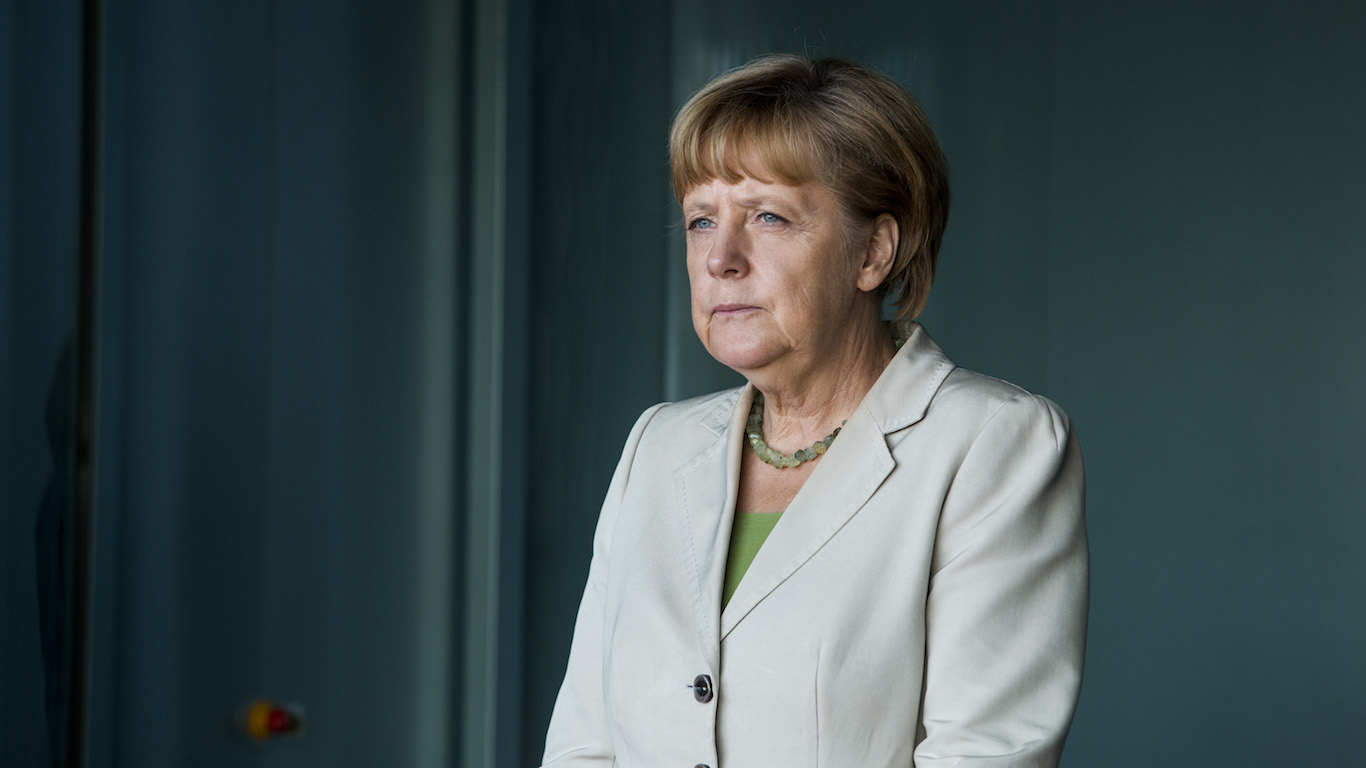
The European Central Bank wants to reverse its multiyear path of economic stimulus and quantitative easing. Unfortunately, that desire may not become reality. Germany is Europe’s largest economy, and there are rising risks that a recession is brewing.
Germany’s Federal Statistics Office reported that industrial production in November marked the third consecutive month with declines. Production at factories was down 1.9% from October, versus an expected 0.3% gain from economists. To make matters worse, that one-month drop translated to a seasonally adjusted drop of 4.7% from the same month a year earlier.
New factory orders also were shown to be down by 1% in November. In that month, overall industrial production excluding energy and construction was down by 1.8%. The statistics office also reported a 1.8% drop in the production of capital goods and a 1.0% drop in the production of intermediate goods. The production of consumer goods was worse, with a drop of 4.1%. Also showing contraction in November were a −3.1% reading in energy production and a 1.7% drop in construction.
The drop in November’s industrial production followed a decline of 0.8% in October.
The implication here is that Germany’s key industrial sector is going to be a drag on the nation’s overall economy for the fourth quarter. Annual growth rates will be released in the coming week. This is after Germany’s economy showed contraction in the third quarter due to one-time factors that were said to be related to new auto-emissions standards.
What is possible here is a technical recession in the classic sense of two consecutive quarters of negative economic growth. Some recessions are obviously worse than others, and a technical recession may be more short-lived and far less bloody than a more pronounced one. Still, one never knows how a recession will turn out until it has unfolded.
The German government lowered its 2018 growth forecast in December to a range of 1.5% to 1.6%. Its prior forecast had been for annual growth of 1.8%.
It was just a year ago that the group described the German economy as experiencing robust expansion and having positive order books and positive sentiment indicators for the industrial sector. Consumer spending was said to be strong, with rising private sector consumption. And the ministry also touted high demand for workers in many sectors keeping employment figures at record levels.
In mid-2018, Eurostat reported that Germany had the largest weighting of the European Union with 21.3% of total gross domestic product. While having over one-fifth of the economy may not comprise a majority, Germany is about 50% more than its next two states. Here was a breakdown of the next state weightings from Eurostat in mid-2018: the United Kingdom (15.2%), France (14.9%), Italy (11.2%), Spain (7.6%) and the Netherlands (4.8%).
Also worth pointing out about Germany’s dominance of the European Union, 11 of the member states did not even contribute 1% of the union’s total weighting. Those nations were listed as Malta, Cyprus, Estonia, Latvia, Lithuania, Slovenia, Croatia, Bulgaria, Luxembourg, Slovakia and Hungary.
For Germany to enter a true recession would be an ill-omen for the global economy as 2019 kicks off. That said, this could be one of those rare instances where a “technical recession” is not followed by large layoffs, contracted housing and major declines in business levels.
The Average American Has No Idea How Much Money You Can Make Today (Sponsor)
The last few years made people forget how much banks and CD’s can pay. Meanwhile, interest rates have spiked and many can afford to pay you much more, but most are keeping yields low and hoping you won’t notice.
But there is good news. To win qualified customers, some accounts are paying almost 10x the national average! That’s an incredible way to keep your money safe and earn more at the same time. Our top pick for high yield savings accounts includes other benefits as well. You can earn up to 3.80% with a Checking & Savings Account today Sign up and get up to $300 with direct deposit. No account fees. FDIC Insured.
Click here to see how much more you could be earning on your savings today. It takes just a few minutes to open an account to make your money work for you.
Our top pick for high yield savings accounts includes other benefits as well. You can earn up to 4.00% with a Checking & Savings Account from Sofi. Sign up and get up to $300 with direct deposit. No account fees. FDIC Insured.
Thank you for reading! Have some feedback for us?
Contact the 24/7 Wall St. editorial team.


